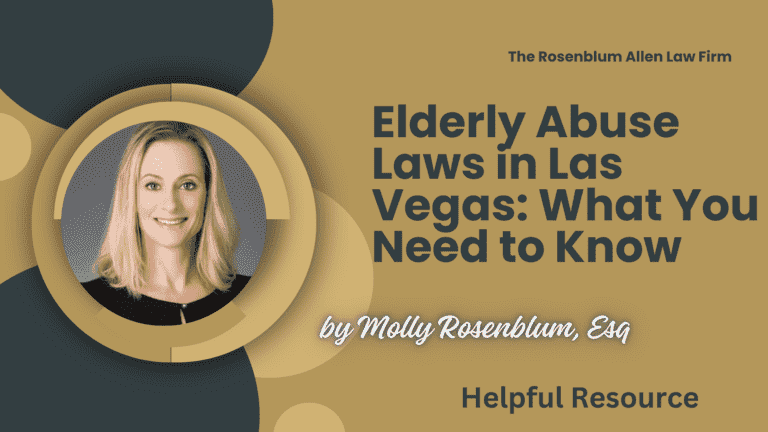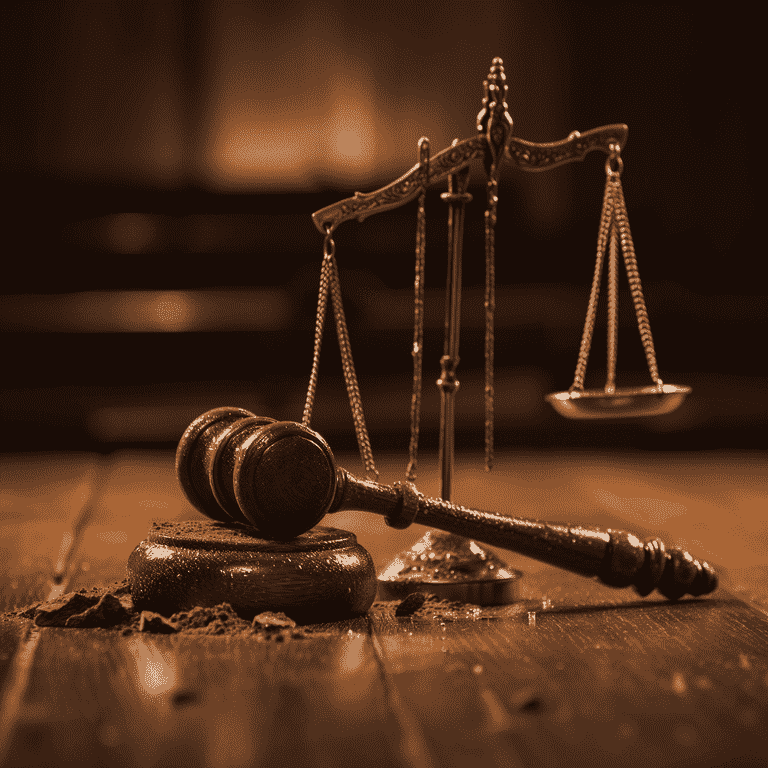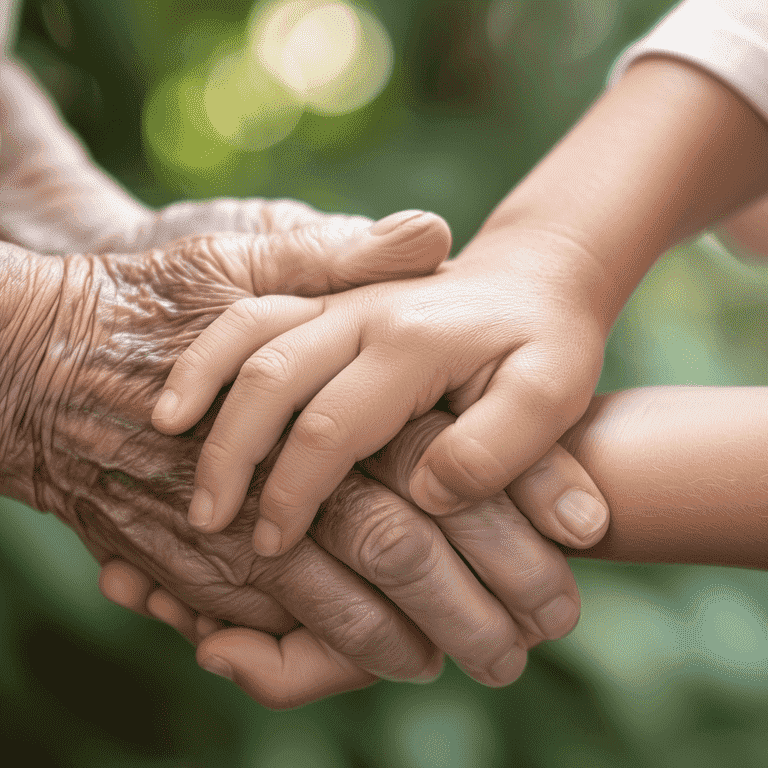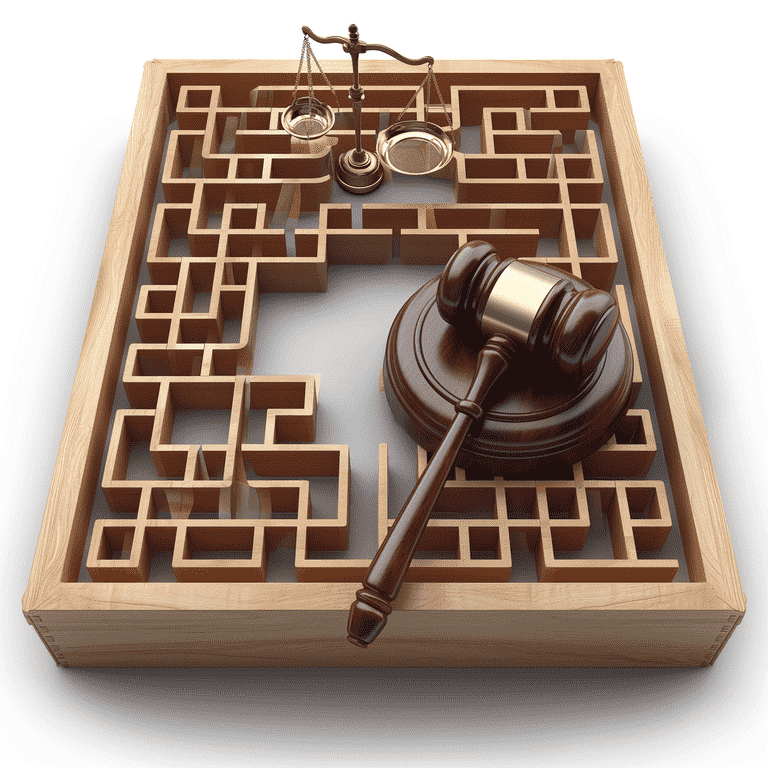In Las Vegas, a city known for its vibrant nightlife and bustling streets, a critical legal issue often overshadowed by the city’s glamour is elderly abuse.
The laws surrounding this serious offense are strict. They reflect the community’s commitment to protecting its senior citizens. This article delves into vital information. You need to know it if you’re charged with elderly abuse in Las Vegas.

 Being charged with elderly abuse can be a life-altering event. It’s not just about the legal repercussions; it’s about understanding the societal and ethical implications of such charges. Las Vegas takes these offenses seriously, and so should you. Whether you’re a resident, a caregiver, or someone facing charges, it’s crucial to comprehend these laws. Doing so will help you navigate the legal landscape and protect your rights.
Being charged with elderly abuse can be a life-altering event. It’s not just about the legal repercussions; it’s about understanding the societal and ethical implications of such charges. Las Vegas takes these offenses seriously, and so should you. Whether you’re a resident, a caregiver, or someone facing charges, it’s crucial to comprehend these laws. Doing so will help you navigate the legal landscape and protect your rights.
Understanding Elderly Abuse
Definition of Elderly Abuse in Las Vegas
In the heart of Nevada, elderly abuse is any intentional or negligent act by a caregiver or any other person. It causes harm or severe risk of injury to a vulnerable adult. This definition is broad and encompasses various forms of mistreatment.
Types of Elderly Abuse Recognized Under the Law
Elderly abuse in Las Vegas isn’t confined to a single form. It spans several types, each with unique characteristics and legal considerations.
Physical Abuse
Physical abuse includes actions such as hitting, slapping, or causing physical harm to an elderly individual. It’s the most visible form of abuse and often the easiest to document and prove in court.
Emotional and Psychological Abuse
This subtle form of abuse involves actions that cause emotional pain or distress. Examples include verbal assaults, threats, intimidation, or isolation. Emotional abuse can be as damaging as physical abuse but more challenging to prove.
Financial Exploitation
Financial exploitation involves illegally or improperly using an older adult’s funds, assets, or property. This can range from stealing cash to misusing power of attorney.
Neglect and Abandonment
Neglect refers to the failure to provide necessary care, leading to harm or risk of harm. Abandonment is the desertion of an older adult by an individual responsible for their care.
Prevalence and Seriousness of Elderly Abuse in Las Vegas
Elderly abuse is not a rare occurrence in Las Vegas. It’s a serious issue that affects numerous families and individuals. The city’s fast-paced lifestyle and transient population can sometimes contribute to the neglect and mistreatment of its elderly residents.
Legal Framework in Las Vegas
State and Federal Laws Governing Elderly Abuse
Both state and federal regulations govern elderly abuse laws in Las Vegas. Nevada’s laws provide strong protection for older people. Federal laws add extra security and consequences for offenders.
Specific Statutes Related to Elderly Abuse in Nevada
Nevada’s statutes outline specific definitions, penalties, and legal procedures related to elderly abuse. These laws are comprehensive. They cover everything from the description of an elderly person to the types of abuse and the corresponding legal repercussions.
Penalties and Consequences of Elderly Abuse Convictions
The penalties for elderly abuse in Las Vegas can be severe. They can range from fines and community service to imprisonment. The severity of the punishment often depends on the nature and gravity of the abuse, as well as the perpetrator’s criminal history.
This section offers a foundational understanding of the legal landscape surrounding elderly abuse in Las Vegas. The information provided is essential for anyone facing charges. It is also important for those who wish to understand better how the city protects its elderly residents. Next, we will delve into the charges and legal processes associated with elderly abuse cases in Las Vegas.

The Charges and Legal Process
How Elderly Abuse Charges Are Filed
In Las Vegas, the journey of an elderly abuse charge often begins with a report. It could be from a concerned neighbor, a vigilant healthcare worker, or a family member. Once reported, law enforcement steps in to investigate. These charges can also surface during routine checks by social services. Understanding this process is crucial. It sets the stage for everything that follows.
The Legal Process for Elderly Abuse Cases
The legal process in elderly abuse cases in Las Vegas can be complex and emotionally taxing.
Investigation and Evidence Gathering
After charges are filed, a thorough investigation ensues. Law enforcement officers gather evidence, interview witnesses, and document findings. This phase is critical. The collected evidence forms the backbone of the prosecution’s case.
The Role of Law Enforcement and Social Services
Law enforcement works closely with social services. They ensure the victim’s safety and well-being. Social services play a pivotal role in providing care and support to the elderly victim. Law enforcement focuses on the legal aspects of the case.
Understanding Your Rights When Charged
When facing charges of elderly abuse in Las Vegas, it’s vital to know your rights.
Right to Legal Representation
You have the right to an attorney. The court will appoint a public defender if you cannot afford one. Having legal representation is crucial. An experienced lawyer can navigate the complexities of the case and defend your rights.
Right to a Fair Trial
Every accused individual is entitled to a fair trial. This includes the right to present your case. You can confront witnesses and have an impartial jury. The presumption of innocence until proven guilty is a cornerstone of the legal system.
Defense Strategies
Common Defense Strategies in Elderly Abuse Cases
Defense strategies in elderly abuse cases vary. Some common approaches include challenging the credibility of the evidence, demonstrating the absence of intent to harm, and proving that the actions were necessary and within the bounds of caregiving.
Proving Innocence or Mitigating Circumstances
Innocence in an elderly abuse case can be established by disproving the prosecution’s evidence or presenting an alibi. Mitigating circumstances, such as lack of intent or misunderstanding, can also play a crucial role.
Lack of Intent
Proving that there was no intent to harm can be a viable defense strategy. This is especially true in cases where the harm was accidental or a result of misunderstanding.
Mistaken Identity
In some cases, proving that the accused was not the perpetrator, often through alibis or witness testimonies, can lead to acquittal.
Insufficient Evidence
Challenging the sufficiency and credibility of the prosecution’s evidence can be an effective defense. This is especially true if the evidence is circumstantial or based on unreliable testimonies.
Role of a Defense Attorney in Elderly Abuse Cases
A skilled defense attorney will assess the case, advise on the best course of action, and work tirelessly to protect the rights of the accused. They are critical in navigating the legal proceedings, formulating a defense strategy, and ensuring a fair trial.
In the following sections, we will explore the impact of a conviction for elderly abuse in Las Vegas. We will also discuss the importance of navigating the legal system effectively. This information is pivotal for anyone facing such charges or involved in the legal process.

Impact of a Conviction
Short and Long-Term Consequences of a Conviction
A conviction for elderly abuse in Las Vegas can have devastating effects. It might mean fines, community service, or incarceration in the short term. Long-term consequences extend far beyond the legal penalties. A conviction can result in a permanent criminal record. This can affect employment opportunities, social relationships, and overall reputation. It’s a stain that can linger forever, significantly altering one’s life trajectory.
Social and Professional Ramifications
Socially, a conviction can lead to ostracization and damaged relationships. Professionally, it can close doors, especially in careers involving trust and care. For those in healthcare or social work, a conviction could mean the end of their career in that field. The stigma attached to such a conviction is profound and far-reaching.
Future Legal Implications
Legally, a past conviction for elderly abuse can complicate future legal matters. It could influence court decisions. For example, in cases like child custody or other legal disputes. A sentence creates a shadow. This shadow follows the individual in all future legal encounters.
Navigating the Legal System
Importance of Legal Representation
Navigating the legal system without proper representation can feel like walking through a maze blindfolded. An experienced defense attorney is not just a guide. They are a crucial advocate who can make a significant difference in the case outcome. They understand the intricacies of the law. They can provide the necessary defense against the charges.
Selecting the Right Defense Attorney
Choosing the right attorney is a critical decision. Look for someone with experience in elderly abuse cases. They should have a strong track record and a deep understanding of local laws and court procedures. This choice can be the deciding factor between a conviction and an acquittal.
Preparing for Court Proceedings
Preparation is key. Work closely with your attorney to understand the charges, gather evidence, and build a strong defense. This includes everything from reviewing witness statements to understanding legal strategies. Being well-prepared can help alleviate some of the anxiety associated with court proceedings.
Resources and Support
Legal Resources Available in Las Vegas
Las Vegas offers a range of legal resources, from public defenders to legal aid societies. These resources are invaluable for those who need legal assistance but may not have the means to afford private counsel.
Support Services for the Accused and Their Families
The journey through a legal battle can be strenuous for both the accused and their families. During this challenging time, support services like counseling and support groups can provide emotional and practical assistance.
Preventative Measures and Education
Prevention is always better than cure. Educational programs and awareness campaigns can play a significant role in reducing instances of elderly abuse. They inform people about the importance of elderly care and the consequences of abuse. These programs also emphasize the need for ethical caregiving. They show the value of our elderly community members.
Why You Have Not Hired a Felony Defense Attorney Yet
Watch this short video to take the next big step toward defending your rights against a felony charge.

Breaking It All Down for You
This comprehensive guide aims to equip readers with a thorough understanding of elderly abuse laws in Las Vegas.
It also explains what to expect if charged and how to handle such a situation effectively. Elder abuse is a serious matter.
Being informed is the first step in ensuring justice and fairness in the legal process. Whether you’re a defendant, a concerned family member, or a caregiver, understanding these aspects of the law is vital.
It helps you make informed decisions and uphold the rights and dignity of the elderly in our community.

Frequently Asked Questions
What are the signs that an elderly person may be experiencing abuse?
Some common signs include unexplained injuries, sudden changes in behavior or mood, isolation from friends and family, poor hygiene, and unusual financial transactions. If you notice any of these red flags, it’s important to report your concerns to the proper authorities.
How can I protect my elderly loved one from potential abuse?
Stay involved in your loved one’s life, visit often, and maintain open communication. Thoroughly vet caregivers and facilities, and watch for any warning signs. Encourage your loved one to stay socially active and connected. If you suspect abuse, report it immediately.
What should I do if I suspect an elderly person is being abused but I’m not sure?
Trust your instincts. If something doesn’t feel right, it’s better to err on the side of caution. You can report your suspicions to Adult Protective Services or local law enforcement. They will investigate the situation and determine if intervention is necessary. Your report can be made anonymously if you prefer.
What are the penalties for elder abuse in Las Vegas?
Penalties depend on the type and severity of the abuse. They can range from misdemeanor charges with fines and short jail terms to felony charges with lengthy prison sentences. In addition to criminal penalties, abusers may face civil lawsuits and be required to pay restitution to the victim.
How can I support an elderly abuse victim through the legal process?
Offer emotional support and a listening ear. Assist with practical matters like transportation to court appointments. Encourage them to work with a victim advocate who can guide them through the legal process and connect them with resources. Most importantly, respect their decisions and maintain their confidentiality.
What should I do if I am falsely accused of elder abuse?
Immediately contact a criminal defense attorney who has experience with elder abuse cases. Be honest with your attorney about the situation. Gather any evidence that may support your innocence, such as witness statements or documents. Avoid discussing the case with anyone else, and follow your attorney’s advice closely.
Can I file a civil lawsuit against an elder abuser in addition to criminal charges?
Yes, victims of elder abuse or their families can file civil lawsuits against abusers. These lawsuits can seek monetary damages for things like medical expenses, pain and suffering, and financial exploitation. A civil case is separate from the criminal case and has a lower burden of proof.
What role do banks and financial institutions play in preventing elder financial abuse?
Banks and financial institutions are in a unique position to spot signs of financial exploitation. They can train staff to recognize red flags, such as sudden large withdrawals or adding a new person to an account. They can also delay suspicious transactions and report concerns to authorities. Many institutions now have specialized fraud detection programs aimed at protecting elderly customers.

Glossary
Elderly Abuse: The intentional or negligent act causing harm or a severe risk of harm to an elderly individual. This encompasses physical, emotional, and financial abuse, neglect, and abandonment.
Vulnerable Adult: An individual, typically aged 60 or older, who is unable to protect themselves from abuse, neglect, or exploitation due to physical or mental impairments.
Caregiver: A person responsible for the care of an elderly individual. This can include family members, healthcare professionals, or other appointed individuals.
Physical Abuse: Acts that inflict physical pain or injury on an elderly person, such as hitting, slapping, or causing bodily harm.
Emotional and Psychological Abuse: Non-physical acts that cause emotional pain or distress, including verbal assaults, threats, intimidation, or isolation.
Financial Exploitation: The illegal or improper use of an elderly person’s funds, assets, or property.
Neglect: The failure to provide necessary care, leading to harm or a risk of harm to an elderly individual.
Abandonment: The desertion of an elderly person by someone responsible for their care.
Adult Protective Services (APS): Governmental agencies responsible for helping elderly or vulnerable adults who are at risk of abuse, neglect, or exploitation.
Statute of Limitations: The time limit for initiating legal proceedings. This varies depending on the severity of the offense in elderly abuse cases.
Bail: A form of security, typically money, given to the court to obtain the temporary release of someone awaiting trial, assuring their appearance.
Medical Professional: Healthcare providers, such as doctors, nurses, or therapists, who may identify and report elderly abuse and provide expert testimony in court.
Civil Case: A legal dispute between individuals or entities, typically involving private rights and remedies sought by the parties, as opposed to criminal cases.
Criminal Case: A legal case brought by the state against an individual or entity accused of committing a crime, with penalties including fines, community service, or imprisonment.
Public Defender: An attorney provided by the state for individuals who cannot afford private legal representation in
criminal cases.
Prosecutor: A legal representative who brings charges against a defendant in a criminal case on behalf of the state or the public.
Defense Attorney: A lawyer who represents the accused party in a legal dispute, working to protect their rights and present their defense.
Presumption of Innocence: The legal principle that one is considered innocent until proven guilty in a court of law.
Alibi: A claim or evidence that one was elsewhere when an act, typically a criminal act, is alleged to have occurred.
Credibility of Evidence: The believability or trustworthiness of evidence presented in a court case.
Investigation: The process of collecting, analyzing, and gathering evidence to establish what happened in a particular scenario, often used in legal contexts.
Witness Testimony: The statement or account given by witnesses who provide evidence or information crucial in a legal case.
Legal Proceedings: Adjudicating legal matters in a court of law.
Community Service: A form of punishment where an offender must perform unpaid work for the community as part of their sentence.
Permanent Criminal Record: A lifelong record that lists an individual’s criminal convictions and charges, which can impact various aspects of their life.
Child Custody: The court determines legal guardianship of a child, especially in divorce or separation cases.
Settlement: An agreement reached by the parties outside of court, often involving a compromise to resolve a legal dispute.
This glossary section defines key terms related to elderly abuse laws and legal proceedings in Las Vegas. Understanding these terms is essential for comprehending the broader context of the content, especially for those facing legal challenges or interested in this subject matter.
Additional Resources for You

Molly Rosenblum, Esq., our distinguished lead attorney, has extensively developed a range of resources to support those facing legal challenges in the realm of criminal defense. These resources, available on the Rosenblum Law website, are designed to offer guidance, insight, and assistance to individuals navigating the complexities of criminal law. Whether you’re dealing with charges related to DUI, domestic violence, drug possession, or any other criminal matter, these resources provide valuable information and expert legal perspectives. Here’s a summary of the resources created to aid you in your time of need:
Criminal Defense Attorneys: Comprehensive support and legal representation for a wide range of criminal charges. Explore the resource.
Las Vegas DUI Lawyer: Specialized legal assistance for those facing DUI charges in Las Vegas, offering expert advice and defense strategies. Learn more.
Domestic Violence Lawyer Las Vegas: Dedicated support for individuals accused of domestic violence, providing legal expertise to navigate these sensitive cases. Discover the details.
Drug Possession Lawyer: Expert legal counsel for those charged with drug possession, focusing on defense tactics and legal rights. Begin your defense.
Sex Crimes Attorney: Specialized defense services for individuals accused of sex crimes, offering confidential and aggressive legal representation. Start your defense.
CPS Defense Attorney: Assistance for those facing child protective services investigations or accusations of child abuse and neglect. Understand your rights.
Misdemeanor Lawyer: Legal advice and representation for individuals charged with misdemeanor offenses, aiming to minimize consequences. Explore your options.
Juvenile Defense Lawyers: Specialized defense strategies for minors facing criminal charges, focusing on protecting their future. Learn about juvenile defense.
Las Vegas Warrant Defense Attorney: Guidance on handling outstanding warrants and legal strategies to address them effectively. Resolve your warrant issues.
Las Vegas Probation Violation Attorney: Expert legal support for those accused of violating probation, with strategies aimed at avoiding harsh penalties. Navigate probation issues.
Theft Crime Defense Lawyer: Defense services for individuals facing theft charges, from petit larceny to grand theft. Begin your defense.
Kidnapping Lawyers: Legal expertise for those accused of kidnapping, offering defense strategies to challenge the charges. Defend against kidnapping charges.
Firearms Lawyer Las Vegas: Legal assistance for firearms-related charges, ensuring your rights are protected throughout the legal process. Understand your rights.
Through these resources, Molly Rosenblum, Esq. aims to empower you with the knowledge and legal support needed to face criminal charges with confidence. We encourage you to utilize these resources, ensuring that you are well-informed and prepared for the legal challenges ahead.

Offsite Resources You May Find Helpful
Here are seven offsite resources that can provide additional valuable information related to the content:
American Bar Association (ABA): A premier resource for legal professionals and the public, offering extensive information on various areas of law. Visit their homepage here.
National Center on Elder Abuse (NCEA): An authoritative source for information on elder abuse, prevention strategies, and relevant research. Access their homepage here.
FindLaw: A comprehensive resource for legal information, offering articles, legal definitions, and information on various legal topics. Explore their homepage here.
National Council on Aging (NCOA): This organization provides resources and advocacy for older adults, including information on elder abuse and prevention. Visit their homepage here.
ElderLawAnswers: A resource dedicated to addressing legal issues affecting the elderly, including elder abuse and elder law. Access their homepage here.
The National Domestic Violence Hotline: Provides support and resources for those facing any form of domestic abuse, including elder abuse. Their homepage can be accessed here.
Administration for Community Living (ACL): An agency focused on improving the lives of older adults and people with disabilities, offering resources on elder abuse. Visit their homepage here.
These resources offer a wealth of information and support for those interested in learning more about elder abuse, legal rights, and available assistance. They are invaluable for individuals seeking guidance or further education in these areas.

A Special Message From Our Lead Attorney
Why You Might Need a Lawyer

Molly Rosenblum, Esq
Dear Reader,
Thank you for taking the time to read through our comprehensive resources on elderly abuse charges. We understand that navigating the legal landscape in such matters can be challenging. It can often be overwhelming. We aim to give you the knowledge and understanding required to make informed decisions in these critical situations.
If you or someone you know is facing charges or has questions about elderly abuse laws in Las Vegas, we are here to help.
The Rosenblum Allen Law Firm offers personalized legal assistance. It is tailored to your unique situation.
I invite you to schedule a free consultation with our experienced legal team. They can support you further. You can reach us at (702) 433-2889. This consultation lets us discuss your case in more detail and explore how we can assist you.
We are committed to providing compassionate and effective legal representation. Your peace of mind and legal success are our top priorities.
Looking forward to assisting you,
Molly Rosenblum, Esq.







